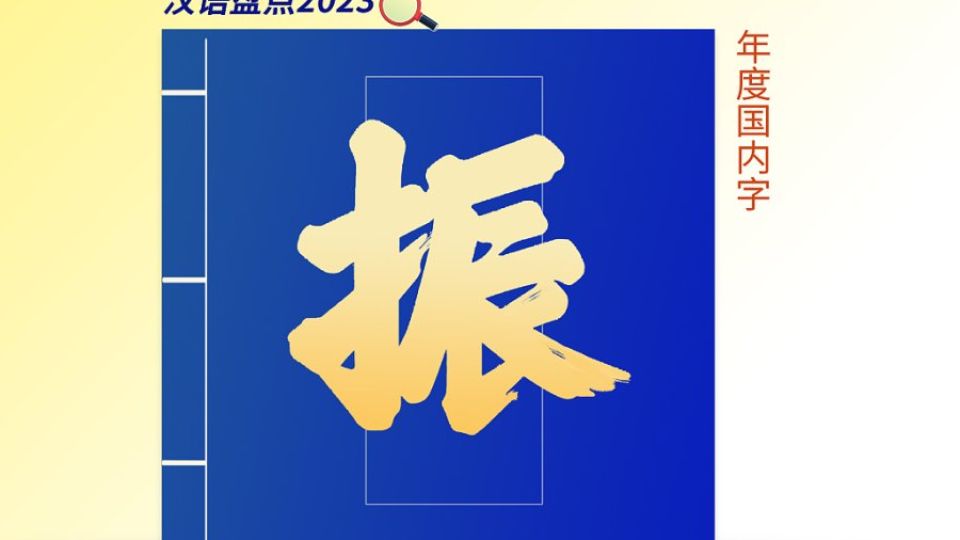December 22, 2023
BEIJING – The Chinese character zhen, meaning “vitalize”, was named the nation’s most popular character related to domestic affairs this year, while the character wei, meaning “risk” or “crisis”, was chosen as the hottest for international topics.
The characters are among a list of popular words, as well as phrases, collected in an annual assessment organized by agencies including the Ministry of Education’s National Language Resources Monitoring and Research Center and the Commercial Press publishing house.
Organizers explained that “vitalize” represents an upward trend and a gesture of trying to make an effort, and that’s the spirit one should have, whether it’s a country or an individual, when facing challenges and obstacles.
Meanwhile, it pointed out that internationally, the world’s path has come to a crossroads amid wars and conflicts, sluggish economies, a widening gap of development and a worsening environment. Organizers called for looking for opportunities hidden in the crises, and using dialogue and cooperation to handle differences in order to build a fair, better world.
In addition to characters, gaozhiliang fazhan, or high-quality development, was chosen as the key domestic phrase of the year, while ChatGPT was named the annual phrase in international topics.
This year marked the 18th time for such a list to be published. Over the last month, the same organizers also revealed the top 10 popular phrases, online catchphrases and new words.
Last year, Chinese words for “stable” and “20th National Congress of the Communist Party of China” were the most popular domestically, while those for “battle” and “Russia-Ukraine conflict” were the hottest internationally.
Some countries and regions using Chinese characters also held similar events to summarize 2023. For example, Japan selected the character “taxation”. Malaysia chose “expensive”. China’s Taiwan chose the character for “lack” for island affairs, while “integration” or “blend” was chosen for cross-Strait events. Such assessment events displayed the cultural recognition among Chinese language users globally and made the language more influential, organizers said.


